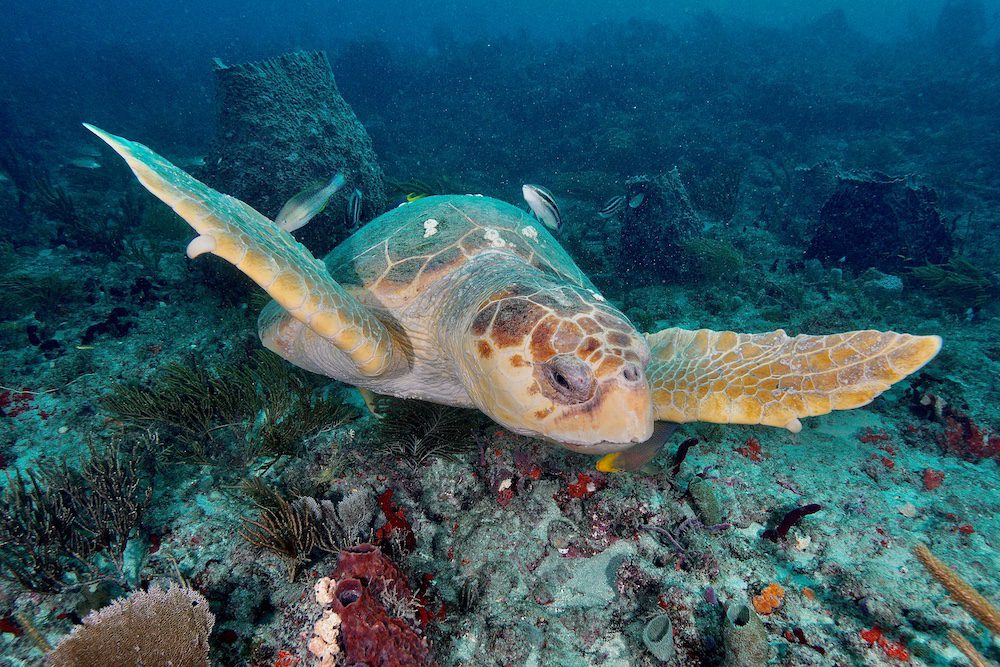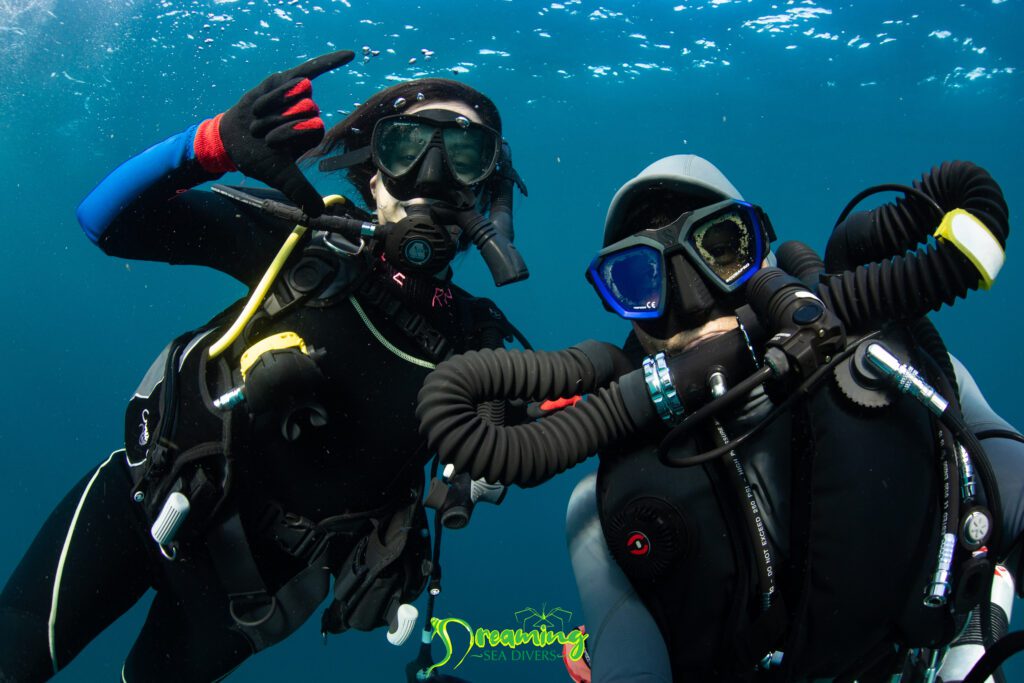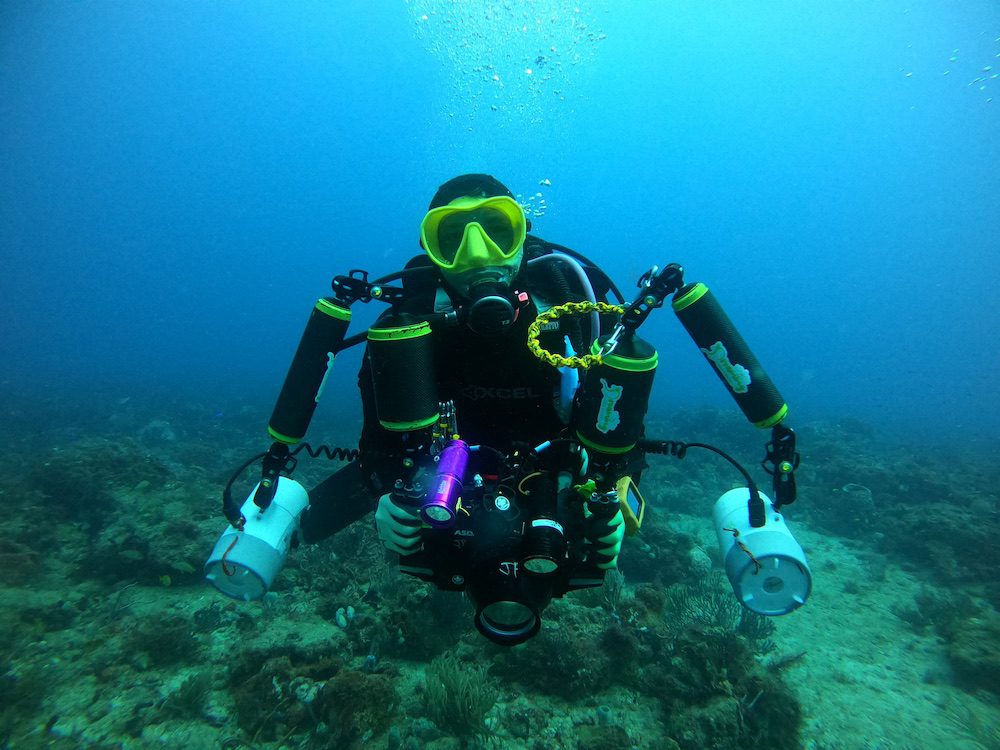
SCUBA Diving transports us to another world - one relatively unexplored, but with so many experiences to offer. From the flora and fauna that inhabit the clear waters of Florida, to the amazing people you meet along the way, it's no wonder this sport is so easy to fall in love with. For those unfamiliar with some of the history, certifications, and equipment that come with SCUBA, we've laid out some answers to your common questions! Take a dive in and explore them here!:
Depending on who you ask, you’ll get a few answers.
Many diving historians say it was in 1825 when the Englishman, William James, invented the first open-circuit system (the air you exhale is vented, not re-breathed). The apparatus consisted of a copper helmet sealed to a waterproof suit. A container of compressed air around the waist fed into the helmet and was manually regulated by the diver.
Other experts say it was in 1878, when Henry Fleuss was granted the first re-breather patent. His apparatus enabled divers to stay underwater for up to 3 hours.
The most definitive example of the first SCUBA was in 1943, when french divers, Jacques Cousteau and Emile Gagnan, invented and successfully performed missions with their Aqua-Lung device. The system is still functionally-similar to the self contained underwater breathing apparatus used today.
These inventors each contributed essential knowledge towards the world of SCUBA we know today.

Individual experience level and the type of diving affects how deep you can dive. For those with basic open water SCUBA training, the limit is 60 feet (18 meters). With advanced open water recreational training, that limit is extended up to 130 feet (40 meters).
In the Technical Diving discipline, the average diving depth is 130-330 feet (40-100 meters), depending on the complexity of the site and diving plan.
It’s essential that you complete the proper training and dive certifications before taking the plunge! Dreaming Sea Divers courses can take you from beginner to expert with our expansive knowledge of SCUBA.
Paul was like a mighty tree that could weather any storm. He had seen everything; nothing phased him. His smile and warmth will be missed, but will live on in everything he touched
Buying your gear versus renting it is a big step for any new diver! It solidifies your commitment to the sport, but it can be daunting to know what to buy, and for how much. Here’s a general overview of the essentials, and how much you’ll likely shell out:
You’ll have to dive into your pocket to own your own SCUBA gear, that’s the truth! Finding a mask and fins that fit comfortably is essential to avoid distracting frustrations underwater and its important not to always go with the least expensive option when it comes to life support equipment such as your BCD and regulator. Finding the right piece of equipment for your budget that does not sacrifice features and safety is what we do at DSD. We also offer rentals of many different manufacturers and models so you can try before you make that big decision for your regulator and BCD.

We are certainly biased, but most divers will tell you… absolutely! There is an enchanting world below the surface, and private lessons open the gateway to exploring it. The courses that Dreaming Sea Divers offers under our Diving Fundamentals section will give you the basic diving skills and knowledge you need to begin your journey to becoming a qualified SCUBA diver. By taking these courses, you’ll get to experience the excitement of SCUBA diving and the amazing world below the surface. These programs serve as the stepping stones to further your diving education and gain the confidence to do more advanced dives later on.
With a private course, your time is valued and all of John's attention is on you. The customer service and high level of instruction that Dreaming Sea Divers provides is what sets us apart. No one does it quite like us.
In order to experience the basics of recreational diving, you’ll need to obtain your Open Water Certification. No prior experience is required, but you must be 10 years or older and in good physical health to swim and move in and around water.
The training begins by developing your diving knowledge. You will read an open water manual or complete an e-learning course to familiarize you with terms, equipment, signals, and planning. From there, you’ll take a final exam to ensure you have thorough knowledge of diving basics.
Then, the real fun begins. You will head to a confined aquatic environment, such as a pool, where you’ll get to practice your new knowledge with the instructor. This will likely take place at the facility nearest to you. The training covers how to:
Once you complete the confined water procedures, you'll head to open water. You’ll make four to five dives over multiple days, enabling you to flex your newly-learned skills and enjoy the sights of the local aquatic environment. This open water segment can be done at a location near you, but there are accommodations to begin this training locally, then complete it elsewhere (like Palm Beach, Florida!).
If you’ve ever wanted to take SCUBA diving lessons, experience unparalleled adventure, and see the world beneath the water, we encourage you to visit Palm Beach and enroll in our Open Water Certification Course!
You don’t have to live near the ocean to get SCUBA certified. Even if you live in a land-locked area, there are numerous locations that offer dive training. As mentioned earlier, you can begin your in-water certification at a location near you, then continue it elsewhere (perhaps the clear waters of West Palm Beach) when traveling on holiday. Locations can include lakes, quarries, and other bodies of water you may not normally associate with SCUBA.
Completing the training and attaining the level of Divemaster can take anywhere from six weeks to six months, depending on the frequency with which the dives are taken.

The terms “Master SCUBA Diver” and “Divemaster” may sound nearly identical, but they are different certifications. Both qualifications indicate highly experienced, knowledgeable divers.
A Master SCUBA Diver certification means that one has met the following criteria:
A Divemaster certification means that one has met the following criteria:
Just because your SCUBA tank is at the end of its life, doesn’t mean that it has to be tossed in the landfill! Repurposing tanks can range in creativity. Some opt to donate their used tanks so they can be used as props in diving education courses. Others take them to local artists to give them material inspiration for their next piece.
No matter what, ensure that the tank is unusable and not under pressure before scrapping or repurposing it. Old tanks are not necessarily unusable – they may just need a tuneup. If the tank's hydrostatic test date is expired, bring it to a facility for evaluation. Steel tanks have a very long life and some from the past decades can still be found in perfect working order.
Contact Dreaming Sea Divers to learn more about this awesome sport and how you can get diving today!